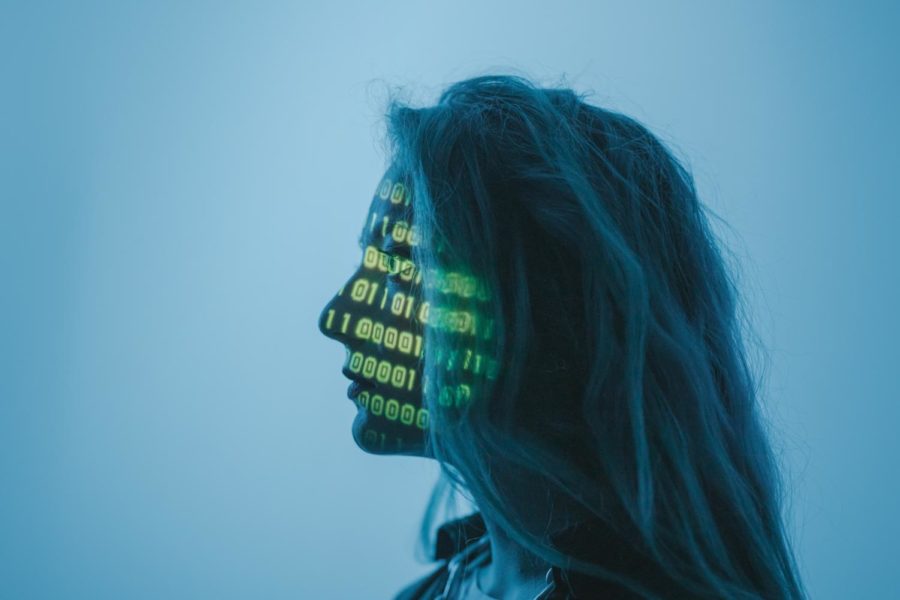Chat GPT and the future of AI in education
A visualization of a woman with computer code projected across her face to represent AI, or artificial intelligence.
April 20, 2023
In the recent few months, the rise of AI, as well as specifically ChatGPT, has been on many minds. As AI continues to evolve, an increasingly large eye has been on how it will affect education, and whether or not having a chat AI capable of writing human-like essays will upend the entire system of academics as we know it.
Fortunately for us, it isn’t the most difficult thing to discern an essay written by a chatbot from one written by a human. After all, a ChatGPT paper will tend to have uncannily good grammar, cite sources that don’t exist or say information comes from a source that it doesn’t, and will, of course, tend to lack a student’s signature style of writing. However, as AI continues to develop, it will become more and more advanced and people cheating with it will become harder and harder to detect. This comes with a variety of different sides to the concept as AI looks more and more like an unavoidable part of education’s future.
“In terms of education, I’m not a fan because of its application but in a broader scope, I believe there is a potential for it to be useful, as it can be used to generate ideas,” said Dami Daniel, an 11th grader here at Crofton High School. “I don’t think I like it being used for school stuff, about how it can be used to be so mechanical about something so human.”
In addition to it being on the minds of students, it is debatably even more on the minds of teachers, as teaching of AI may be part of their job at some point. “You can stick an essay into ChatGPT and it will give you a response,” said Mr. Matthew Fisher of the history department. “But knowing what to do with that response, and whether that is a skill that is worthy of student learning, well, I don’t know yet. It may just be the next step in learning technology, and I don’t think we’ve ever taken a step this big this fast. I think it scares people because we don’t know how to confine it yet, and how to help students use it without cheating.”
The inevitable truth of the matter is that AIs like ChatGPT will continue to evolve and become a part of our lives. It has the potential to shift education as we know it and flip the script on how knowledge is passed down, and we haven’t really had experience with something like this before. The reality is that the true potential of ChatGPT– and the future of how we look at teaching– remains to be seen.
